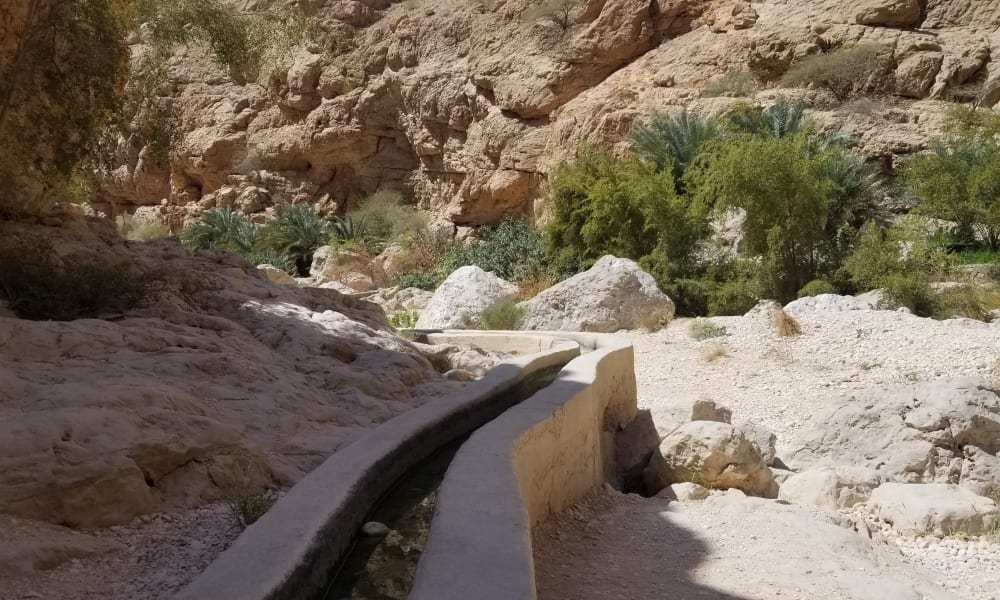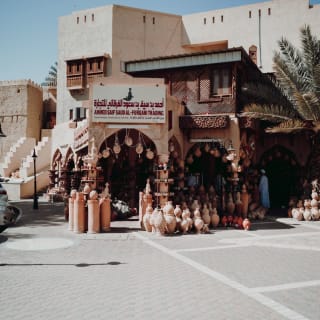
The Falaj
The Falaj
The Falaj is a unique style of water channel located in Oman and forms a system of irrigation. In 2006, five of these “Aflaj” (“Aflaj”-is the plural of Falaj) systems were listed as UNESCO World Heritage Sites. According to legend, the Afalaj, the world's most sophisticated water systems, were built under the reign of King Solomon. These incredible irrigation canals were created to alleviate the plight of the people in the arid regions.
According to research, the Persians established these unique canal systems. The simple and effective underlying principles of the Falaj comprise a sophisticated technology. By adjusting and moving gate valves and stones, the water is channeled through narrow tunnels and channels to where it is needed. By taking advantage of sloping geography and gravity, the water is directed to cities and villages and allocated.
Even today, the Falaj Irrigation Systems are supplying water At present, 3000-4500 of the ancient irrigation systems still function as water supply systems with a total length of more than 1000 kilometers.
In Oman, there are three distinct forms of Falaj:
- The Ayni Falaj fed directly from springs and wells.
- The Ghaili Falaj receive their water from Wadi (non-permanent rivers varying according to rainfall) which feed ponds or running water where it is channeled through open channels to its destination.
- The Dawoodi Falaj, fed from underground wells of groundwater. Through tunnels with a length of several kilometers, a depth of up to 20 meters and a slight incline, the water is channeled out into the open.
The Falaj channels' gates are opened and closed according to a well-defined timetable by the “Wakir” or “Wakeel” (in Arabic), the manager of the Falaj channels. On average, the “Wakir” sends fresh water to its final destination every six hours.
Nowadays, visitors are still visibly impressed by the stunning ancient, yet innovative technology of the Falaj irrigation system. Ruler and Sultan Rashid bin Said is particularly proud of the fact that the ten-kilometer-long tunnel has been in operation for over 200 years.
Discover Oman with experts who have called it their home
Your dream holiday, tailor-made by experts.
We don't just know Oman from books, we visit the country several times a year to experience the culture, landscape and people first-hand.
From your first enquiry to your return home, we are there for you personally - by phone, email or WhatsApp, whenever you need us. Our trips are as unique as you are: individually planned and provided with exclusive privileges and high-quality arrangements that will make your trip unforgettable.
Experts for your Oman trip







